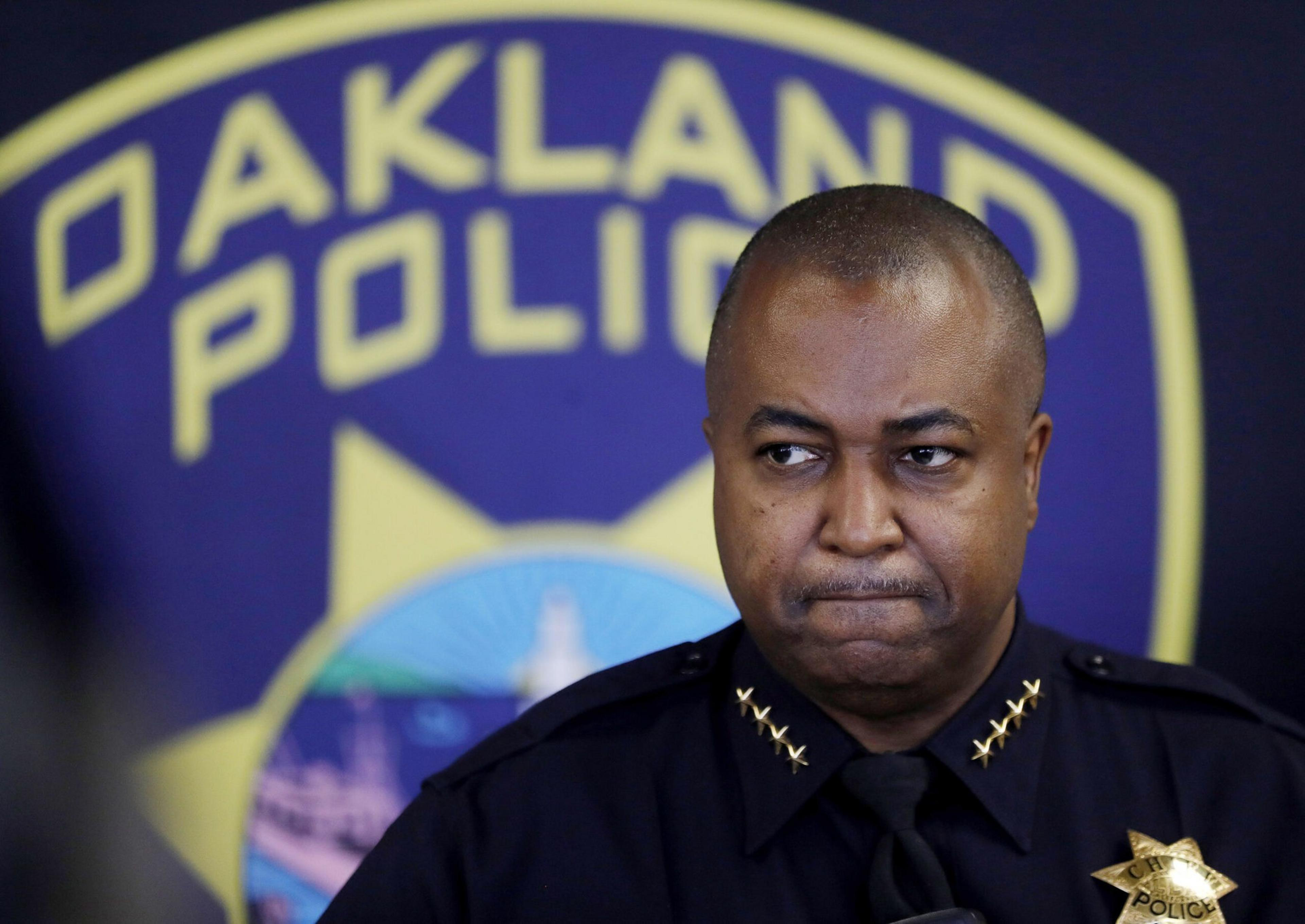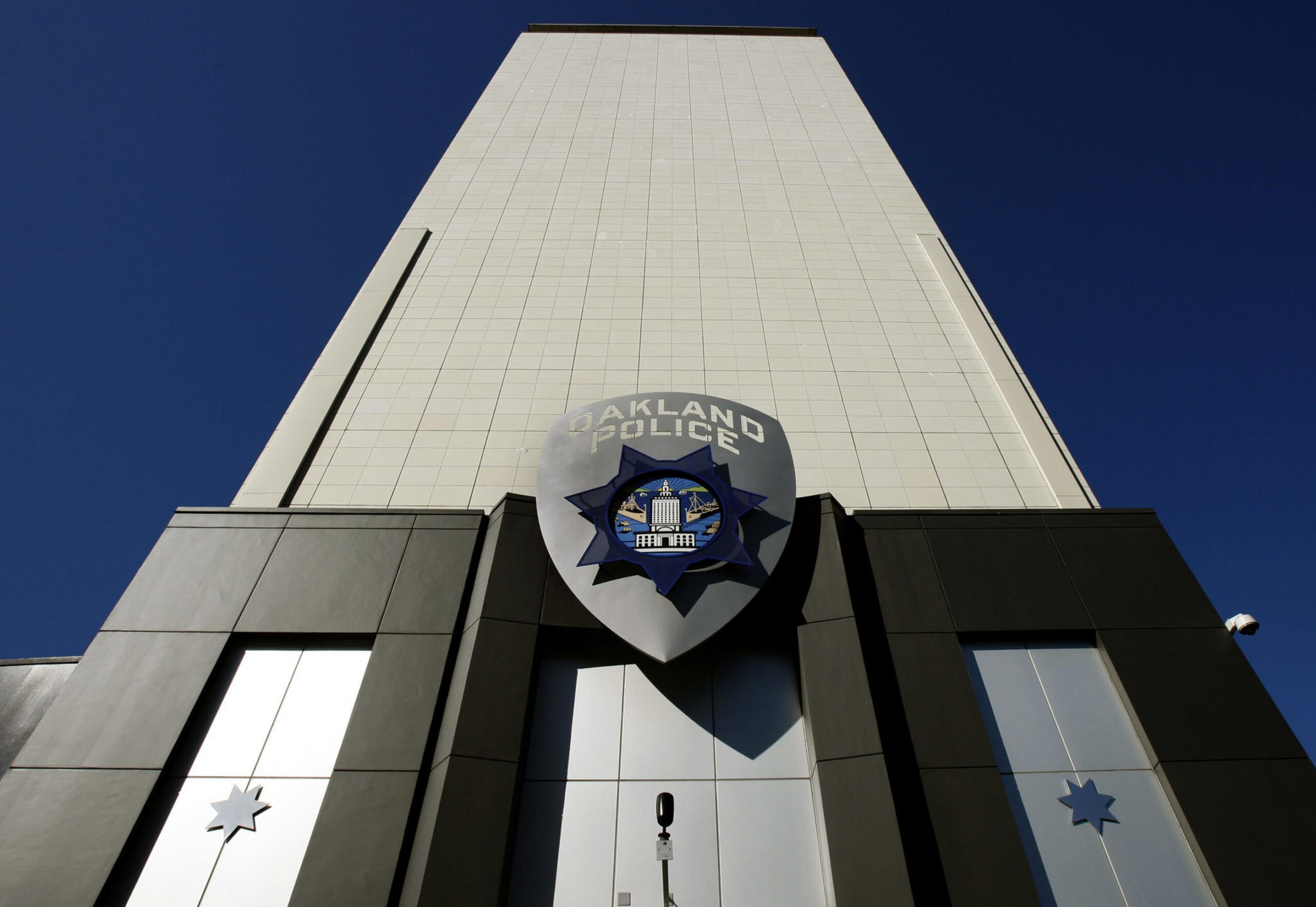Six weeks after Oakland’s mayor fired the police chief, a search for a permanent replacement has yet to begin.
The process for hiring what will be the city’s 12th chief in a decade is in the hands of a voter-created Police Commission. Oakland Mayor Sheng Thao fired chief LeRonne Armstrong in February without telling the commission after that body delayed its review of his discipline. Much of the commission opposed the firing, and that stance could complicate the search process, the commission chair and observers told The Standard this week.
The city charter says the search has to be done by the Police Commission (opens in new tab), which is composed of citizens. The commission will pick three finalists for the mayor to choose from.
Police Commission Chair Tyfahra Milele said the ad hoc hiring committee is set to meet this month, but she is unsure if the mayor will fund a search firm, which the commission does not have the funds to pay.
“Until then, as chair, I have reached out to the Mayor’s Office to determine whether there is funding for a nationwide search, and I look forward to meeting with her about that priority,” Milele said.
On March 24, the mayor responded supportively to a March 15 letter from the commission requesting $50,000 and a meeting about the process.
“The Mayor’s Office is in conversation with the Police Commission about next steps to activating the search for candidates. No contract has been signed with any search firm as of yet; we expect to support the commission’s leadership in this executive search process,” Julie Edwards, a spokesperson for the mayor, said.
The last search firm contracted to find chief candidates led to the hiring of Chief Anne Kirkpatrick, who was hired in 2017. The cost was roughly $850,000, and the process took seven months. But the commission fired her in February 2020 after she alleged corruption within its ranks. Eventually, a jury vindicated her (opens in new tab), saying she was wrongfully terminated.
After Kirkpatrick was fired, the commission decided to head up the search process itself, quietly and successfully pushing for its preferred candidate—Armstrong. It took 12 months.
John Alden, the former head of the Community Police Review Agency, the Oakland Police Department’s civilian investigative arm, said that doing the search in-house may have saved money but did not save time.
“They’re really slow when they try to do this themselves,” said Alden, who was fired by (opens in new tab) the commission in 2022 without explanation.
Milele said that Thao had assured the commission she would consult them before firing Armstrong but didn’t.
Whoever eventually fills the role, the city’s search will “prioritize candidates who represent Oakland’s values and diversity,” Edwards told The Standard in response to a request to the Mayor’s Office about the process. She said the mayor hopes the next chief will complete the reforms program overseen by the department’s federal monitor, reduce crime and shepherd the department out of federal oversight.
Finding an eager and experienced candidate to take over the troubled force will be a tall order for whoever leads the search. The nearly 700-member department has had 11 chiefs in the last decade and has been under federal oversight for two decades, while violent crime in the city is on the rise.
Interim Chief Darren Allison is running the department until the city finds a long-term replacement.

Debate Over Firing
Robert Warshaw, the federal monitor who has been overseeing the department for two decades, praised Thao’s decision to fire Armstrong. In a report to a federal judge last week, Warshaw said Thao “has invoked the leadership essential to the sustainment of a culture of accountability” and “has set the tone that should permeate the department.” Signaling he believed his work was far from done, he added, “The Oakland Police Department is facing very serious questions about its capacity to police itself.”
Thao’s office said last week she’s ready and willing to follow through with the monitor’s recommendations on reform, focusing on the discipline process, but declined to comment about Warshaw’s response to the chief’s firing.
“The city is fully engaged in strengthening the department’s internal investigation processes […] to ensure overall integrity and accountability in the department’s internal investigations,” the mayor’s spokesperson, Edwards, said.
Warshaw’s report added that issues that prompted federal oversight years ago have reappeared. And that while the department made serious progress toward reform, he said a “myriad of cultural deficiencies linger.”
Those issues center on internal affairs—specifically, how the department disciplines its officers.
Thao wanted Armstrong gone after a report launched by Warshaw looking into the discipline process for Sgt. Michael Chung became a public scandal in January.
Chung fired his gun in the elevator of a police building and tried to cover it up. Chung had also been involved in a hit-and-run in San Francisco. The monitor concluded that the department was too lenient in handling Chung’s case, issuing discipline that did not match the offense. Together, those incidents became the catalyst for the chief’s departure.

Since then, Armstrong has defended himself, saying there’s “no evidence brought forward against me.” He told The Standard that the report on Chung’s discipline process tacitly claimed that he knew about, or should have known, details about the internal affairs investigation before the case was brought before him, which was not true.
“It was a stretch to say it was ‘gross dereliction of duty,’” Armstrong said about what the report claimed.
Armstrong still has his supporters.
“The position I have on the report is that [its] claims to support the termination of Armstrong, I think, were fallacious, and they were unsupportable,” said John Burris, an attorney who is representing a party in the federal monitor case.
